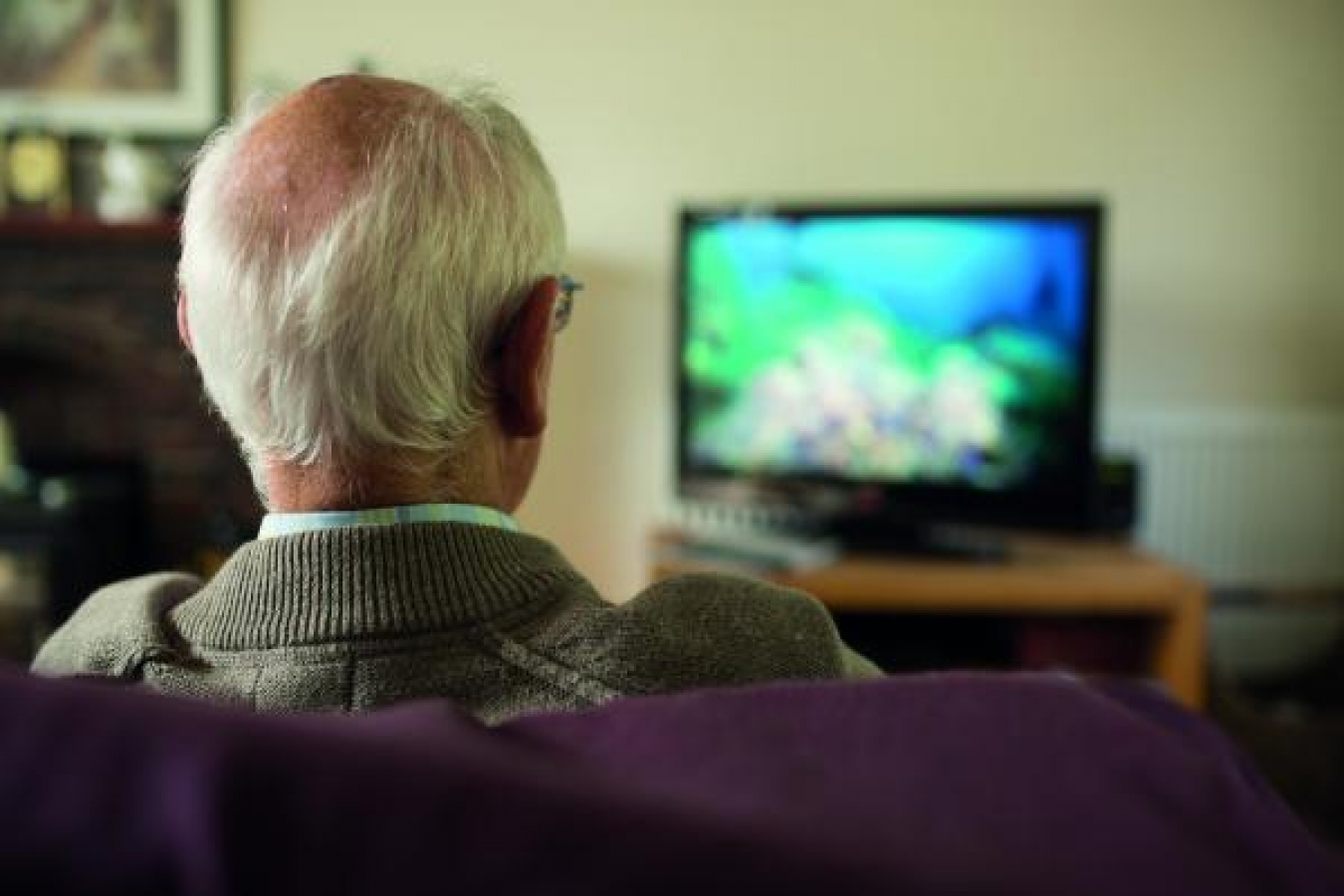


 7:4:17
7:4:17  2019-03-02
2019-03-02  1583
1583

Older people who want to preserve their faculties may wish to consider rationing their TV time. A large new study of older adults found that those who spent at least 3.5 hours per day watching TV experienced a greater decline in verbal memory.
Researchers at University College London in the United Kingdom analyzed data from the English Longitudinal Study of Ageing (ELSA) on 3,662 adults aged 50 and older.
In 2008–2009, and again in 2014–2015, the ELSA participants had answered questions about the time they spent watching TV.
At these times, they also completed tests of verbal memory and fluency.
The analysis revealed that those who watched TV for 3.5 hours or more per day had an average decline of 8–10 percent in word- and language-related memory over the 6 years the study covered. This is compared with a lower 4–5 percent average decline in those who watched fewer hours of TV per day over the same period.
The study, which now features in the journal Scientific Reports, found no such links between TV viewing time and differences in "semantic fluency."
The verbal memory tests asked the participants to memorize and then recall lists of words within a given time, while the semantic fluency tests asked them to list as many examples of a category (such as a type of animal) as they could think of within a given time.
The study authors note that while there has been a lot of research into the effects of watching TV on cognition, most of it has focused on children.
"Much less attention," says study co-author Dr. Daisy Fancourt, who works in the Department of Behavioural Science and Health, "has been paid to the effects of television viewing at the other end of the lifespan, despite it being hypothesized for over 25 years that watching excessive television could contribute to the development of dementia."
Watching TV is a 'passive activity'
An interesting point about the new study is the fact that the link between extensive TV viewing and greater verbal memory decline remained even after the researchers adjusted the results for how much time people spent sitting.
In considering potential reasons for their findings, they discuss the nature of TV viewing compared with other sedentary activities.
"Television," explain the study authors, "has been described as a unique cultural activity in that it combines strong, rapidly changing fragmentary dense sensory stimuli on the one hand with passivity from the viewer on the other."
Many studies that have tied sedentary time to cognitive decline in older adults have not considered this unique "alert-passive" nature of TV viewing, but they have treated it as a "proxy for sedentary behavior."
The authors draw comparisons with research on other screen-based sedentary behaviors that has not linked them to cognitive decline.
Some studies, for example, have suggested that using the internet and playing video games — both sedentary activities that involve use of a screen — may even preserve, if not enhance, cognitive skills such as those necessary for problem-solving.
Watching TV and 'cognitive stress'
The researchers suggest that watching TV could impact verbal memory through "cognitive stress." Such stress, they argue, might arise from the alert-passive nature of TV viewing coupled with the psychological effects of witnessing violent, suspenseful, and graphic scenes.
Another explanation for the study findings could be that the more time people spend watching TV, the less opportunity they have to engage in "cognitively beneficial activities," such as reading, playing board games, and cultural pursuits.
This could imply that the potentially negative impact of TV viewing is not just a result of its direct effects, but also because it displaces activities that preserve cognitive ability, even though they may also be sedentary.
"However," note the study authors, "this remains to be explored further in future studies."
Study does not deny benefits of TV
Finally, the researchers point out that their findings do not suggest that TV viewing in older age has no benefits at all. There is evidence, for instance, that adults who watch dramas as opposed to documentaries do better in tests that indicate a greater ability to understand others.
Some studies have also revealed that when "designed appropriately," educational TV programs are efficient vehicles for learning.
TV also offers a means to escape from life at times of difficulty, and many people consider it a form of relaxation.
The British Heart Foundation part-funded this research. Chris Allen, a senior cardiac nurse for the charitable organization, explains that "it's important to remember that cognitive decline is not the same as dementia."
"But if you're concerned that the amount of television you're watching could be having a negative impact on your health, we would advise limiting the amount of TV you watch each day and working in some heart-healthy hobbies to your routine." – Chris Allen
By Catharine Paddock PhD, Medical News Today
Reality Of Islam |
|

MXenes are

A newly dev

Get ready f

Researchers
 9:3:43
9:3:43
 2018-11-05
2018-11-05
10 benefits of Marriage in Islam
 7:5:22
7:5:22
 2019-04-08
2019-04-08
benefits of reciting surat yunus, hud &
 9:45:7
9:45:7
 2018-12-24
2018-12-24
advantages & disadvantages of divorce
 11:35:12
11:35:12
 2018-06-10
2018-06-10
 6:0:51
6:0:51
 2018-10-16
2018-10-16
 7:59:14
7:59:14
 2018-06-21
2018-06-21
 2:33:4
2:33:4
 2023-02-15
2023-02-15
 2:42:26
2:42:26
 2023-02-02
2023-02-02
 2:11:12
2:11:12
 2022-10-15
2022-10-15
 7:34:7
7:34:7
 2023-02-28
2023-02-28
 8:19:41
8:19:41
 2018-06-21
2018-06-21
 2:5:14
2:5:14
 2023-01-28
2023-01-28
 5:41:46
5:41:46
 2023-03-18
2023-03-18
| LATEST |